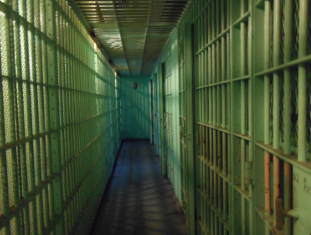Post-Covid prison reforms
At the beginning of lockdown the UK government announced that they were looking to release up to 4000 low-risk prisoners in order to prevent the further spread of the virus throughout prisons. Across 29 jails in the UK, 88 prisoners have tested positive for the virus with a further 1,200 believed to be self-isolating. While this policy is being championed as the common sense solution, most of its proponents have failed to acknowledge the larger philosophical questions that this poses for Britain, which has the highest rate of imprisonment in Western Europe.. The scheme would allow prisoners with two months or less remaining of their sentences to be put up for release, providing they present a low risk to society and seem able to rehabilitate into society, with housing and healthcare options available to them upon release. Violent offenders, those with coronavirus or those who have committed crimes relating to the virus will not be considered and pregnant prisoners will be considered more closely to protect those more vulnerable to the virus. Once released, prisoners would be monitored and tracked with electronic tagging, up for recall if any issues occurred once outside of prison.
Is this proposal an implicit acknowledgement of the futility of our overpopulated prisons? Are there better ways of dealing with low-risk offenders? The pandemic has clearly underlined a surplus of prisoners in UK prisons, many of whom pose no tangible threat to society - so is it just to hold them in prison, costing taxpayers thousands and limiting their freedom? By raising questions about the very nature of prisons in the UK the proposal has given new life to prison reform campaigns.While it could be argued that the pandemic creates a special circumstance, enabling more drastic measures to protect the population, if such individuals can be released without danger to the public or themselves as a result of this, then perhaps they should not be imprisoned in the first place.
Is this proposal an implicit acknowledgement of the futility of our overpopulated prisons?
The Prison Reform Trust has hailed the policy as a “substantial step in the right direction” for prison reform. As prisoners are regularly locked up together, since holding large numbers of them in solitary is not feasible for the large prison population in the UK, the danger of coronavirus spreading rapidly amongst them is greatly increased. Thus, the policy would lessen the pressure on prison staff substantially, as well as protecting them and other prisoners from the virus.
Britain has the highest rate of incarceration in Western Europe with approximately 173 prisoners per 100,000 of the population. Thus, prison reform is not a new issue; the former government minister, Rory Stewart suggested that prison sentences of less than six months should be abolished, and last year the Commons Justice Committee demanded that all sentences less than a year be abolished. Factions from both parties publicly subscribe to the ideas and arguments that drive prison reform: that the justice system should be focused on rehabilitation, rather than simply on enacting punishment. Even after a short span in prison, an individual is likely to find it much harder to reintegrate into society. They may be introduced to drug cultures and dangerous individuals within prisons and likely lose reputations, families, friends as a result of their incarceration. This will likely incentivise more prisoners to remain criminals, reducing their chance of future reintegration into society.
Many arguments refuting the scheme have been put forward in response to reformers. The Conservative government promised to keep our streets safe and reduce crime rates in their most recent campaign, and the act could appear to go against this. By offering criminals a chance to be released early, regardless of their crimes, this still could present an influx of offenders being released at a time where the police are already stretched due to virus related issues such as upholding social distancing measures and enforcing mask wearing. However, their apparent willingness to release these prisoners arguably undermines the narrative that mass incarceration will make our streets any safer.
“their apparent willingness to release these prisoners arguably undermines the narrative that mass incarceration will make our streets any safer.”
As of April, 200 prisoners had been put up for early release, with a further 300 being considered. However, only 33 releases have been reported, with the Ministry of Justice refusing to release any further statistics. Many have argued against these limited results, including Shadow Secretary of Justice, David Lammy who said that “locking prisoners up in isolation for 23 hours a day is not sustainable or acceptable. … The government must set out its exit strategy for prisons that mirrors the rest of the country. This should include testing, tracing, PPE, as well as the early release scheme the government has put in place.”His sentiments have been echoed by many prison ministers and government bodies advocating for prison reform in the UK.
Although it is settled that prison systems in the UK are a necessary tool to keep violent and dangerous individuals away from society, where we draw the line between who should and who should not be imprisoned is still worth discussing. The pandemic has shown that many offenders with lesser crimes may benefit from a different system of judicial treatment. To ensure that they are not drawn into further criminal activity and are able to rehabilitate successfully into society, other forms of punishment may prove more successful. This argument, endorsed by prison ministers and judicial teams in the Commons alike, may prove a more positive and successful way to reduce crime and pressures on UK prisons.


